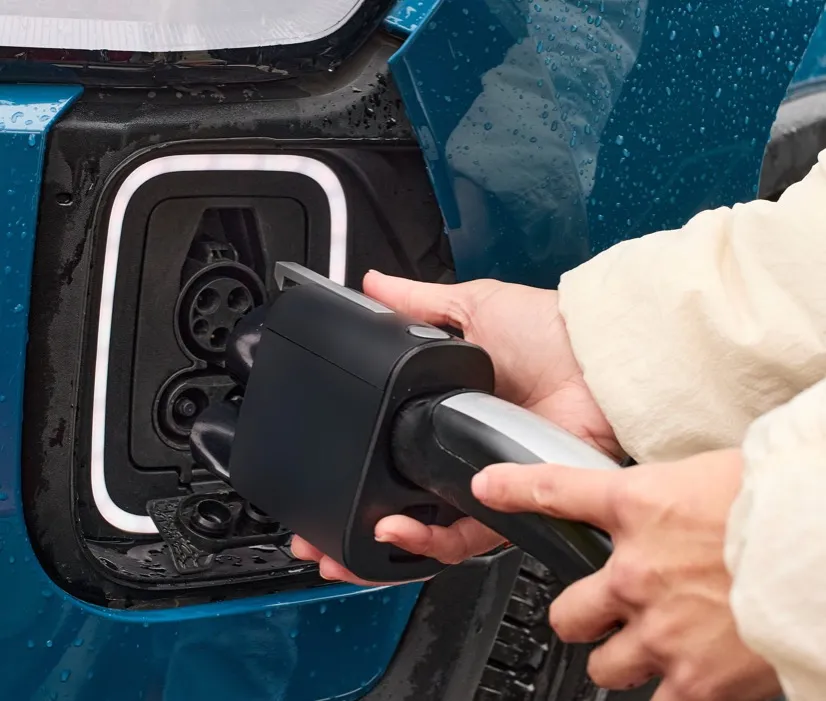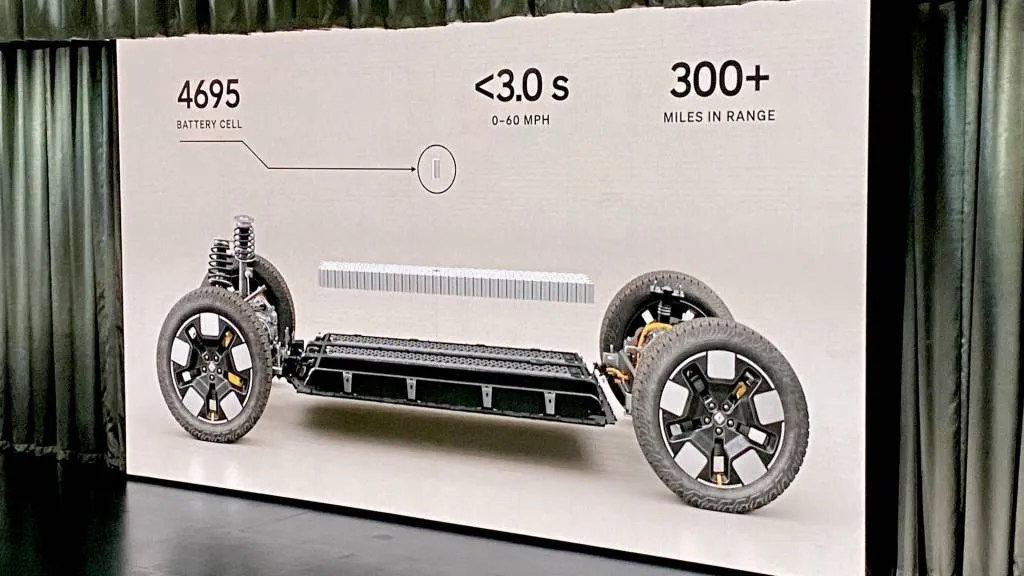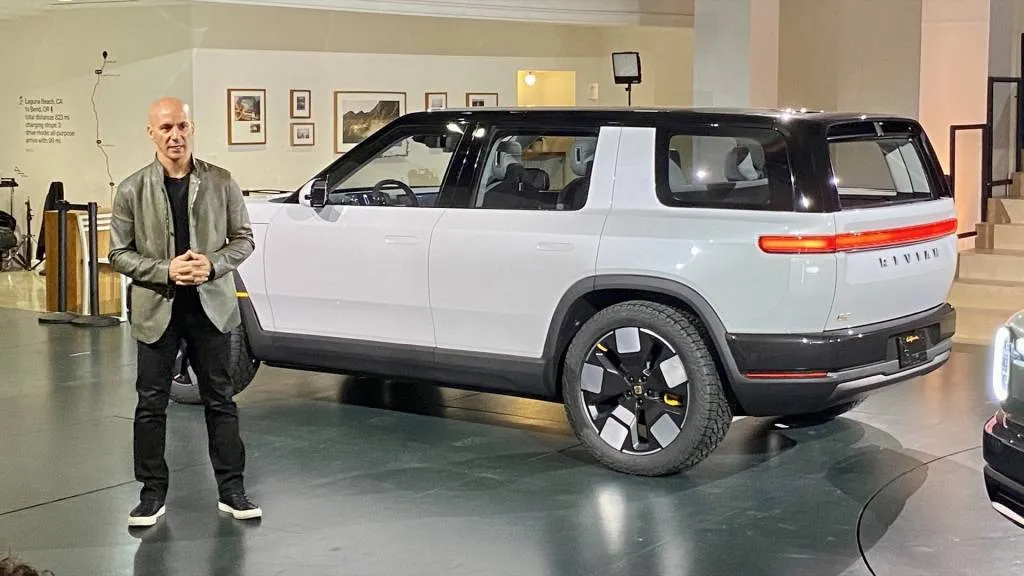- Rivian confirmed rear left charge port location in upcoming R2 models
- That changes from plans on rear right for streetside charging and Rivian’s own networks
- R2 owners should have an easier time using Supercharger stations
Front, rear, left, right? Automakers still can’t agree on where to place EV charge ports on vehicles. But it appears that Tesla’s longtime preferred location at the left rear may have swayed another U.S. EV maker—Rivian.
DriftBreath of Rivian’s switch in location for future EVs came Thursday through Rivian Forums. A contributor noted that as the R2 and R3X were being shown at the Rivian Space in Pasadena, Calif., an executive confirmed the move in charge port location from the brand’s currently set right rear location.
“We can confirm the charge port will be located on (the) rear driver’s side of R2,” a Rivian spokesperson stated to DriftBreath Reports Friday. “We look forward to sharing more info and specs on R2 in the future.”
Rivian R1T at Tesla Supercharger
Reach issues with R1 charge port at Superchargers?
The shift may have something to do with Rivian owners’ experiences at Tesla Supercharger stations using the current charge-port location of R1S and R1T models—on the left side of the vehicle, just ahead of the driver’s door. At some Supercharger locations, in experiences well documented on YouTube and in forum posts, Rivian drivers have had to get creative with parking in order to reach their charge port with the Tesla connector.
Rivian confirmed last June that it would adopt the Tesla-based charge port, also called J3400, as part of the North American Charging Standard (NACS). The R2 and R3 families made their debut in March in prototype form with the Tesla port under neatly downsized charge-port doors at the right rear of the vehicle, instead of the bulkier CCS port. Then in March it announced that it would begin shipping free NACS adapters to R1 customers, arriving in April, with Superchargers since then appearing in Rivian trip planning.
There are currently 2,321 Tesla Supercharger locations in the U.S., offering 26,217 charging ports, according to the U.S. Department of Energy.

Rivian NACS adapter
Right rear was for streetside charging, Rivian’s networks
In March, at the launch of the $45,000 Rivian R2, as well as the smaller, even more affordable R3 and R3X, all built on the same next-generation platform and part of the same product family, Rivian officials suggested that the charge port placement on the rear right was an ideal location for streetside charging. That’s expected to be increasingly important in Europe, where Rivian is hoping to sell many of these vehicles, and eventually more U.S. urban environments.

Rivian R2
Rivian’s head designer Jeff Hammoud then fielded some additional questions about the placement of the charge port, making clear that Rivian had already given the location a lot of thought.
“We did a lot of research and specifically in left-hand-drive countries in Europe,” Hammoud said to a small group, including DriftBreath Reports. “We saw a lot of people charging cars on the street, and you’d see anything from charging cables wrapped over hoods to get to the other side, and we wanted to solve that.”
Hammoud summed that putting the port at the rear of the vehicle versus the front meant fewer wires, less weight, and less cost. Further, Rivian has been building its current charging network for that front left position of the R1, and he added, “If you’re gonna flip the car back into the space, it’s essentially the exact same location.”
To underscore what Rivian has confirmed versus what it hasn’t, this shift in location is technically so far only confirmed for the R2, not necessarily the R3.
The choice of the Tesla location for the R2 does however suggest that the sheer volume of charge sessions on the Tesla Supercharger network may make it a worthwhile tradeoff for customers, and perhaps for the brand’s image. In making these future, more mass-market vehicles easier to use on the Supercharger network, it’s future traffic and revenue for those Tesla stations. Now, will any other automakers follow?



